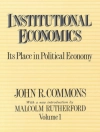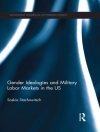How can people of diverse religious, ethnic, and linguistic allegiances and identities live together without committing violence, inflicting suffering, or oppressing each other? In this volume, contributors explore the limits of toleration and suggest we think beyond them to mutual respect. Salman Rushdie reflects on the once tolerant Sufi-Hindu culture of Kashmir. Ira Katznelson follows with an intellectual history of toleration as a layered institution in the West. Charles Taylor advances a new approach to secularism in our multicultural world, and Akeel Bilgrami responds by offering context and caution to that approach. Nadia Urbinati explores why Cicero’s humanist ideal of Concord was not used in response to religious discord. The volume concludes with a refutation of the claim that toleration was invented in the West. Rajeev Bhargava writes on Asoka’s India, and Karen Barkey explores toleration within the Ottoman and Habsburg Empires. Sudipta Kaviraj examines accommodations and conflicts in India, and Alfred Stepan highlights contributions to toleration and multiple democratic secularisms in such Muslim-majority countries as Indonesia and Senegal.
विषयसूची
Introduction, by Alfred Stepan and Charles Taylor
Religion and the Imagination, by Salman Rushdie with Gauri Viswanathan
Part 1. Classical Western Approaches to Toleration
A Form of Liberty and Indulgence: Toleration as a Layered Institution, by Ira Katznelson
How to Define Secularism, by Charles Taylor
Secularism: Its Content and Context, by Akeel Bilgrami
Half-Toleration: Concordia and the Limits of Dialogue, by Nadia Urbinati
Part 2. Before and Beyond Classical Approaches to Toleration
Beyond Toleration: Civility and Principled Coexistence in Asokan Edicts, by Rajeev Bhargava
Empire and Toleration: A Comparative Sociology of Toleration Within Empire, by Karen Barkey
Modernity, State, and Toleration in Indian History: Exploring Accommodations and Partitions, by Sudipta Kaviraj
Muslims and Toleration: Unexamined Contributions to the Multiple Secularisms of Modern Democracies, by Alfred Stepan
Contributors
Index
लेखक के बारे में
Alfred Stepan is the Wallace Sayre Professor of Government at Columbia University. He is the coauthor of Problems of Democratic Transition and Consolidation and Crafting State Nations and the coeditor of Democracy and Islam in Indonesia.Charles Taylor is professor emeritus of philosophy at Mc Gill University and the author of Sources of the Self: The Making of the Modern Identity; Modern Social Imaginaries; and A Secular Age.












